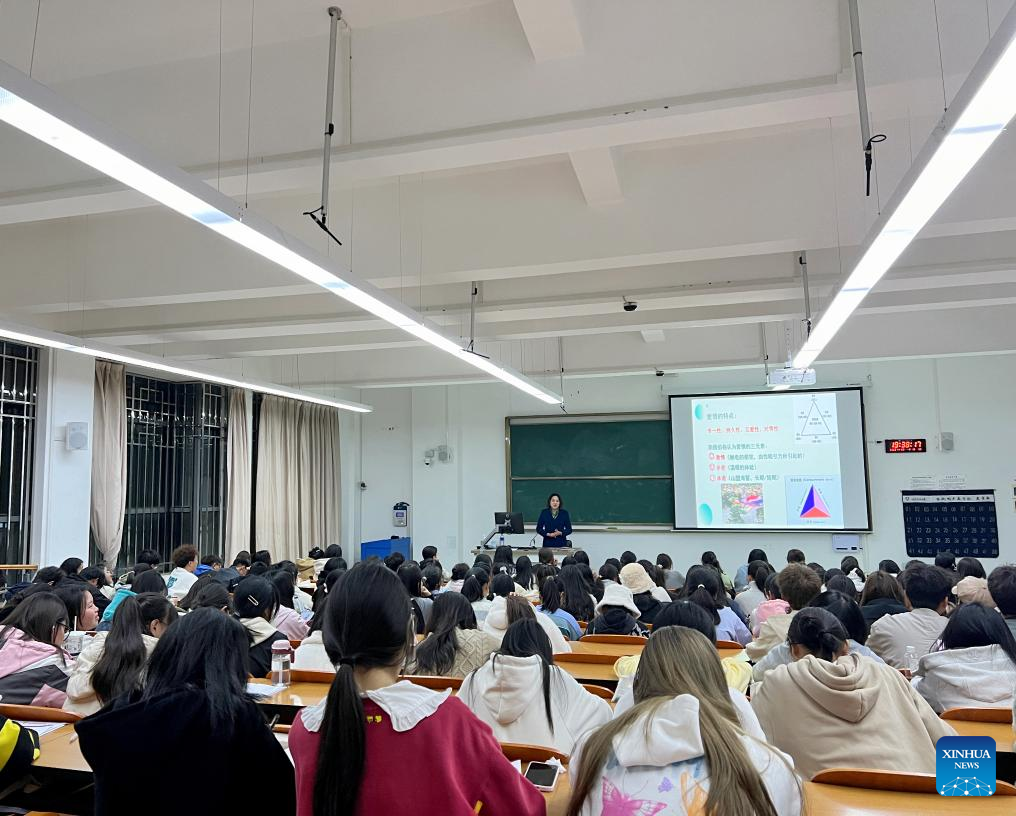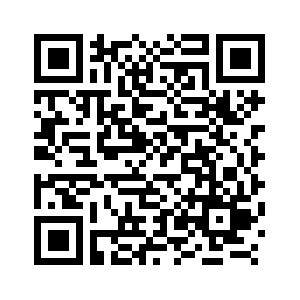
Ouyang Huirong gives a sex education lesson to students at Yunnan Normal University in Kunming, southwest China's Yunnan Province, Nov. 28, 2023.(Xinhua/Zhao Cailin)
KUNMING, Dec. 1 (Xinhua) -- When Ouyang Huirong started sex education lessons in 2005, she was not sure how her students would respond to the subject, which tends to be a taboo subject in China.
Despite her reservations, it has proved a resounding success. At 7 p.m. every Tuesday, her classroom at Yunnan Normal University with the capacity of 200 students is always full.
Ouyang is head of the university's hospital. For 18 years, her class has remained one of the most popular optional classes.
"Due to the lack of sex education, many university students know little about the subject, which leads to irreversible consequences," she said. "With this class, I hope that I could help them protect themselves and others."
Having worked as a doctor for years, she has seen firsthand the tragic impact that a lack of access to sex education can have. One student, who she only identifies by his surname Qi, found his first same-sex partner at the age of 19 on campus.
"He had always thought that it was safe on campus and HIV/AIDS was something distant, until 2012 when he was tested positive for the virus," Ouyang said.
China reported the first AIDS case in 1985. Now that the country has almost stopped the spread of HIV through blood transfusion and effectively controlled infection through hypodermic needles and from mother to child during pregnancy, sex has emerged as the biggest channel for HIV infection.
In Yunnan Province, southwest China, of the 4,364 individuals who tested positive for HIV in the first 10 months this year, sex accounted for 98 percent of the transmissions.
Ouyang applied to the university in March 2005, volunteering to start a course on sex education and health. She still remembers how she felt the first time she stepped into the classroom, which only had about 60 students.
"We haven't had similar courses before and I had nothing to borrow from," she said. "The only thing that supported me was my passion."
In her class, Ouyang starts by talking about relationships. She not only focuses on HIV/AIDS prevention, but also touches on topics such as sexually transmitted diseases (STDs), sexual psychology, sexual ethics, and laws concerning sex, among others.
Opening the notebooks she had used for the past 18 years, the pages are not only filled with details of each class, but also feedback and suggestions from students, which she uses to adjust her lessons.
She also encouraged her students to get tested for HIV. "At first they were reluctant, but later they understood that it was good for both themselves and other people." In what seemed like a mission impossible, within less than two hours 100 plus students rolled up their sleeves and got tested.
Ouyang shares her contact information with her students, so that they could find her whenever they need. Throughout the years she has received thousands of messages, letters and phone calls, asking for help or sharing stories. "Some of the students have already graduated, but they stay in touch with me."
One letter from a student reads: "when I was growing up, there was no sex education, as society is silent about sex and our families avoid talking about it as well. In your class we learned how to protect ourselves and our loved ones. You provided a channel where we could find answers to our questions, for which we have nowhere to ask otherwise. It is our hope that you could keep on teaching this course."
Another student of her later became a teacher, who recently gave a similar lesson in a middle school. "Ouyang helped me realize the importance of sex education," she said.
This sentiment chimes with Ouyang. "I work in a normal university, and most of our students will become teachers themselves. I hope that they will pass on the knowledge," she said.
Earlier this year she filmed a video of her lessons and uploaded it to the massive open online courses (MOOC), so that the knowledge could be available to more youngsters.
"There is no cure for AIDS currently, nor effective vaccines that can prevent HIV infections," she said. "I hope that my lessons help our students stay safe, and at the same time live a healthy lifestyle, and be happy and responsible." ■



